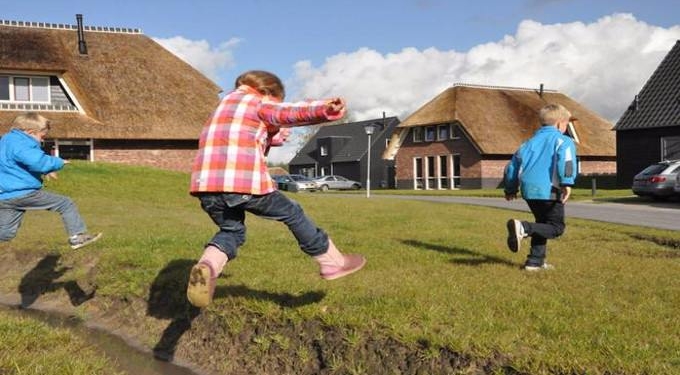
By Katherine Martinko | Treehugger
The secret lies with Dutch parents, whose approach is radically different from that of American parents.
In 2013, Unicef released a ‘report card’ that assessed children’s wellbeing in 29 of the world’s richest countries. It concluded that Dutch children are the happiest of all, based on five categories: material wellbeing, health and safety, education, behaviors and risks, housing and environment.
The Netherlands scored highest in both behaviors and risks and education, and its excellent scores in the other categories put it firmly in the leading position, followed by four Scandinavian countries. (The United States was at the bottom, worse than Greece but better than Lithuania.) Even Dutch children vouched for their own happiness, with 95 percent “reporting a high level of life satisfaction.”
There is nothing more wonderful than thinking of children who are joyful about their own existence. That’s precisely how it should be. Childhood is a time for making memories, pushing boundaries, having great fun. What’s tragic is that Dutch children’s innate happiness stands in such contrast to many children in North America, who seemed to be plagued by chronic unhappiness.
Kids may be similar the world over, but their parents are not. The way in which a child is raised has everything to do with how a child turns out, particularly when it comes to happiness. It seems the rest of the world (are you listening, USA?) could learn a thing or two from the Netherlands. After all, isn’t happiness what every parent ultimately wants for their child?
So what’s different?
Two mothers, one American and one British, both married to Dutchmen and raising families in Amsterdam, have weighed in on the conversation. In an article for The Telegraph, Rina Mae Acosta and Michele Hutchison, describe what defines a typical Dutch childhood and why it’s so successful.
Dutch parents don’t stress out about school.
There is little pressure to meet goals, and education isn’t even structured until age 6, when a child has been in school for three years. If a kid is slow to read, no one worries; he or she will catch up eventually. The environment is friendlier overall, since the competitive element just isn’t there. The Unicef study found:
“Dutch children are among the least likely to feel pressured by schoolwork and scored highly in terms of finding their classmates friendly and helpful.”
Dutch parents are happy, which means their kids are happy.
Dutch parents don’t try to be perfect. They accept the fact that they’ll make plenty of mistakes while parenting. Culturally, there are many more fathers who take an active role in parenting, which takes pressure off mothers. Acosta and Hutchison write:
“The Dutch work on average 29 hours a week, dedicate at least one day a week to spending time with their children, and pencil in time for themselves, too. You won’t find a Dutch mother expressing guilt about the amount of time she spends with her children – she will make a point of finding time for herself outside motherhood and work.”
These parents are also authoritative. They tell their kids what to do; they do not ask them. “The idea is to not give the child a choice of options but to give clear directions.” This approach eliminates many of the battles of wills that occur in American households multiple times days. While Dutch kids’ opinions are heard and respected, the kids still know who’s boss.
















